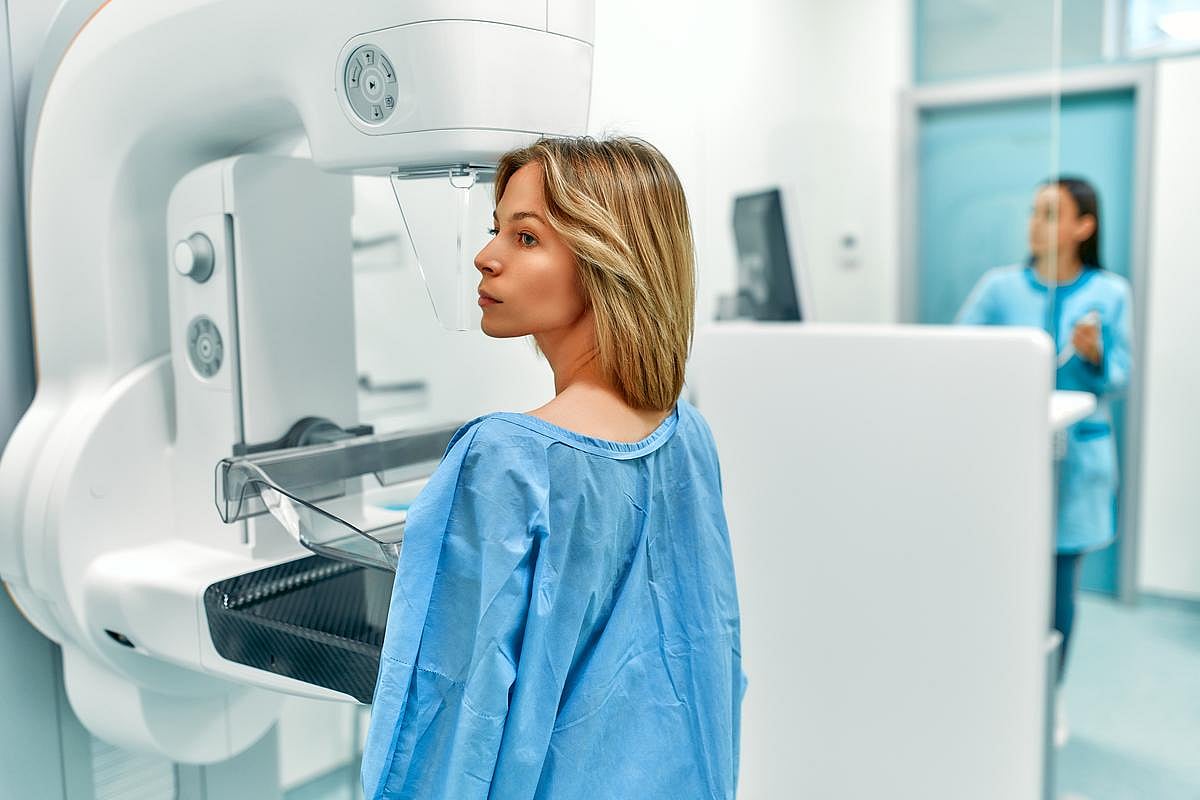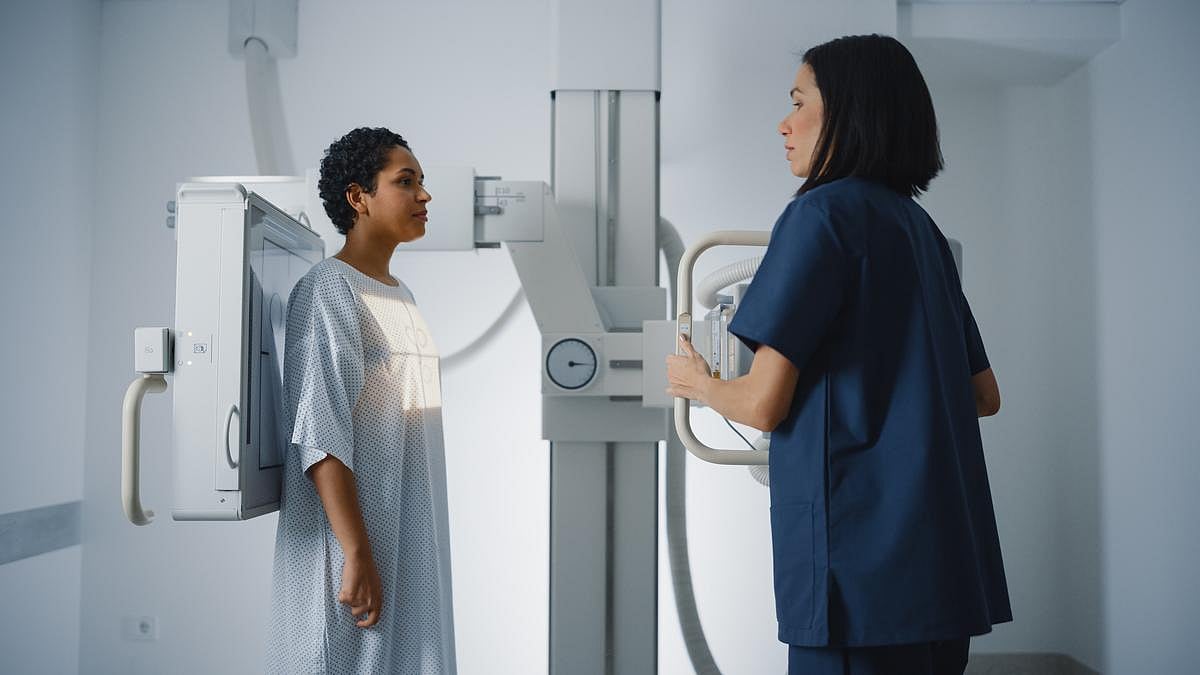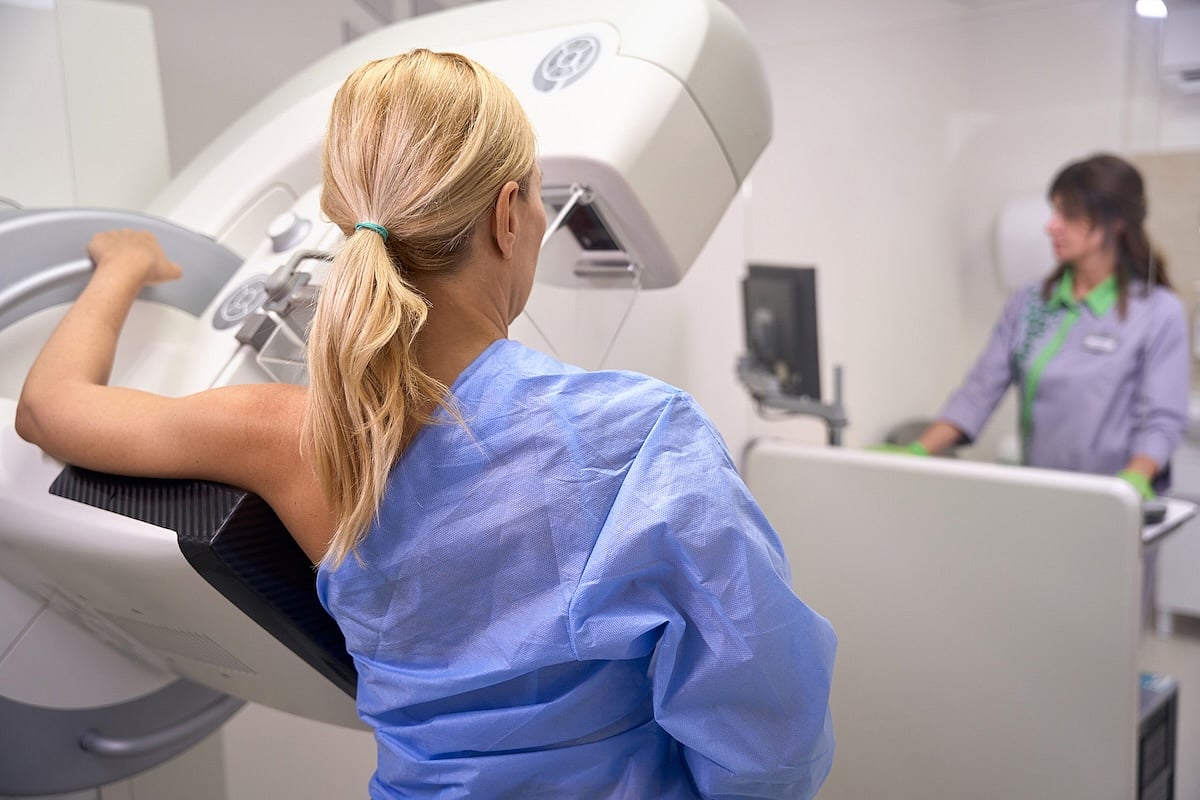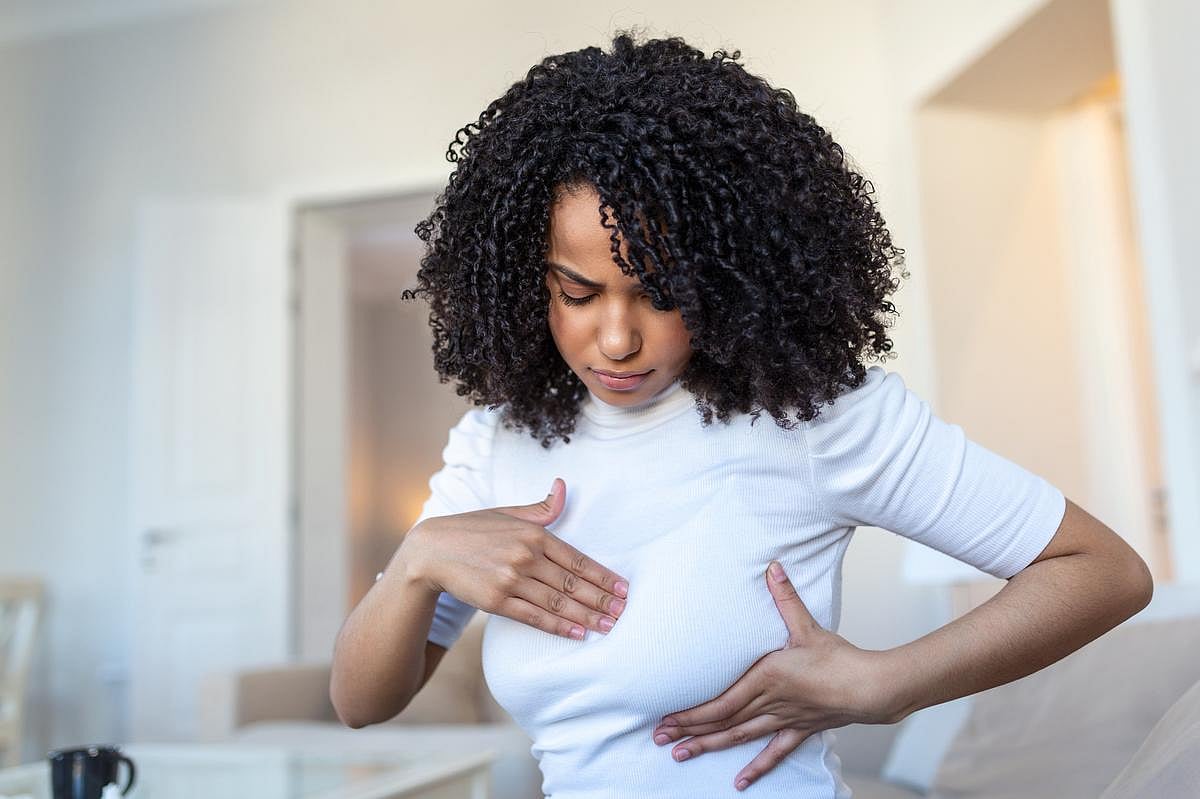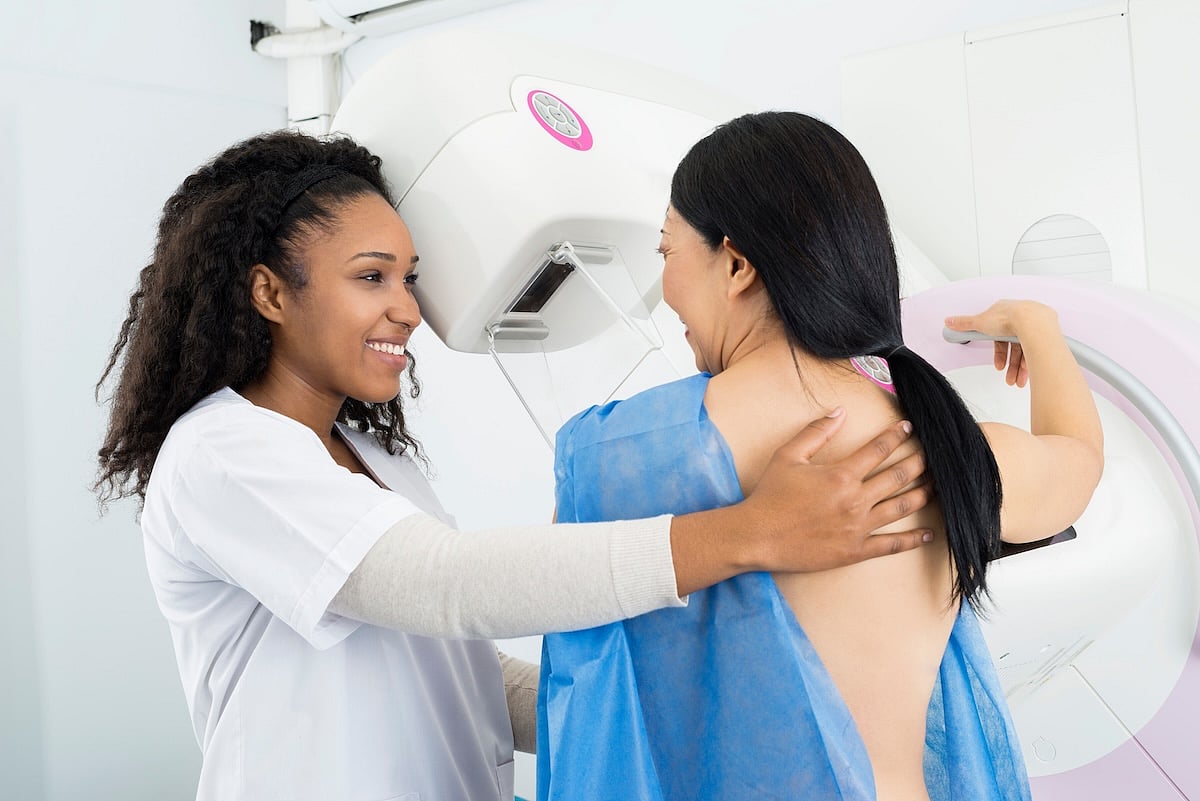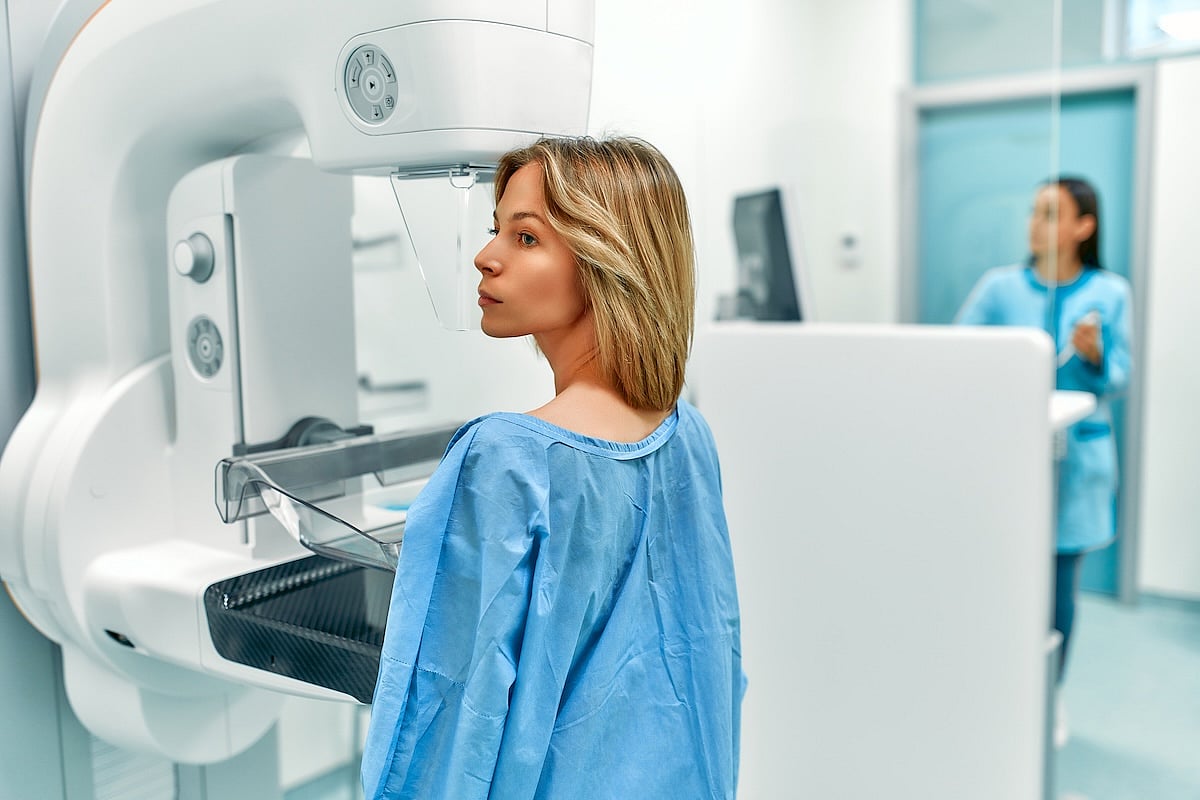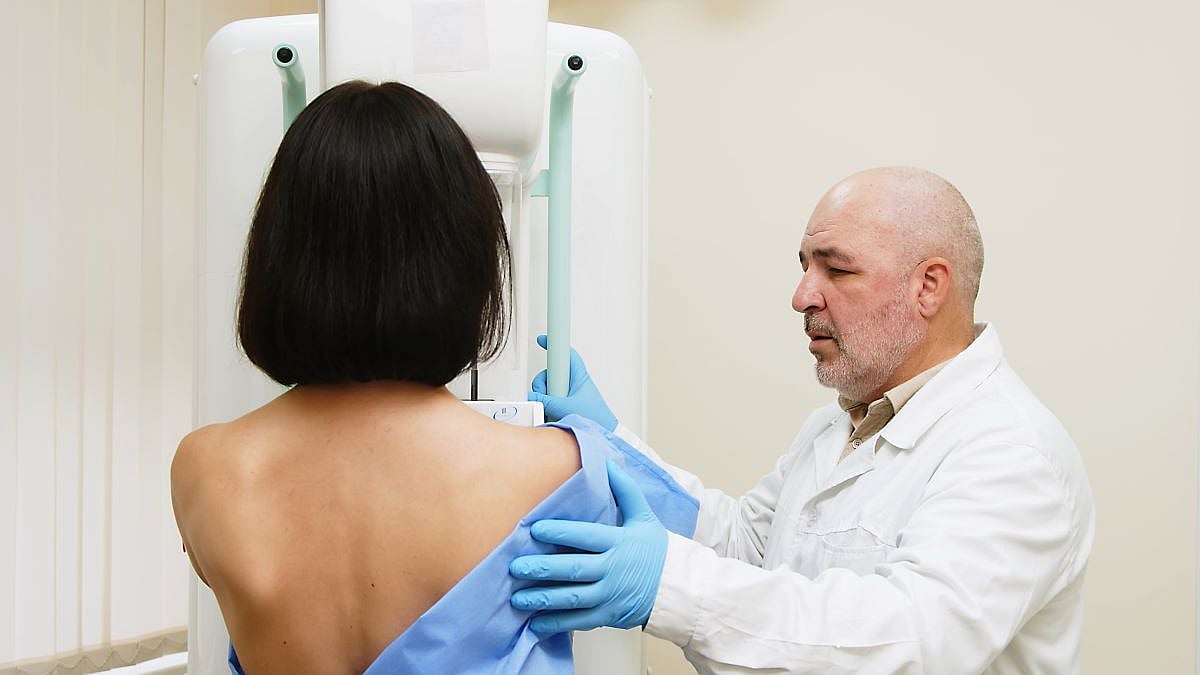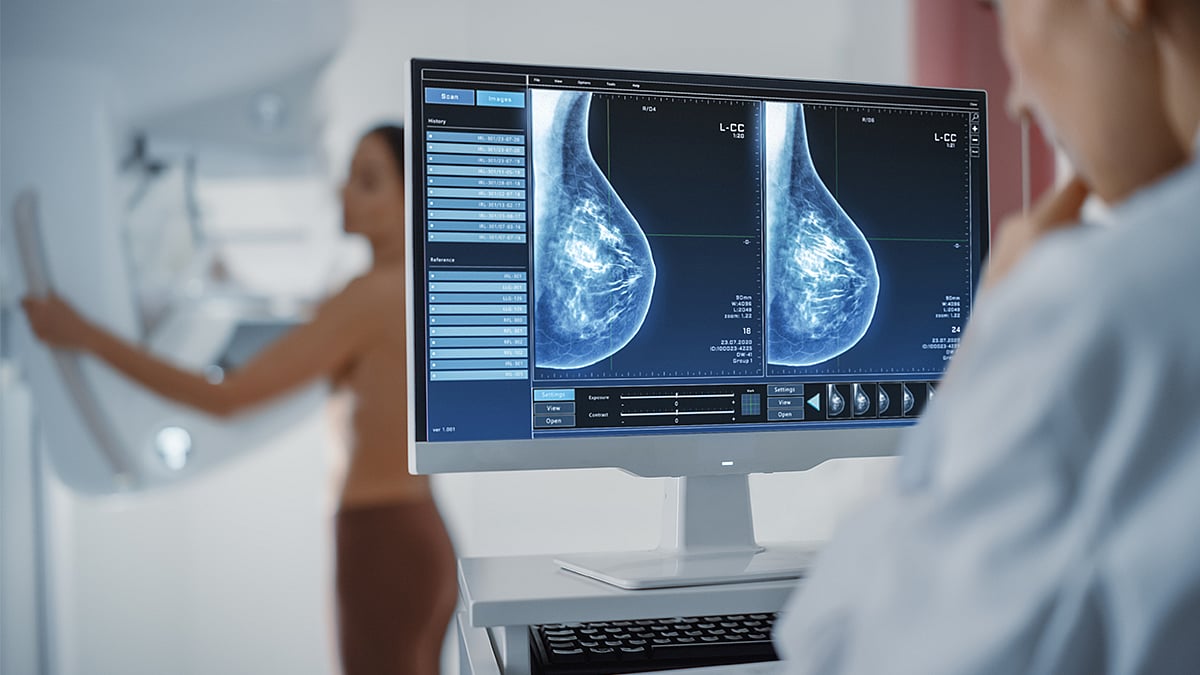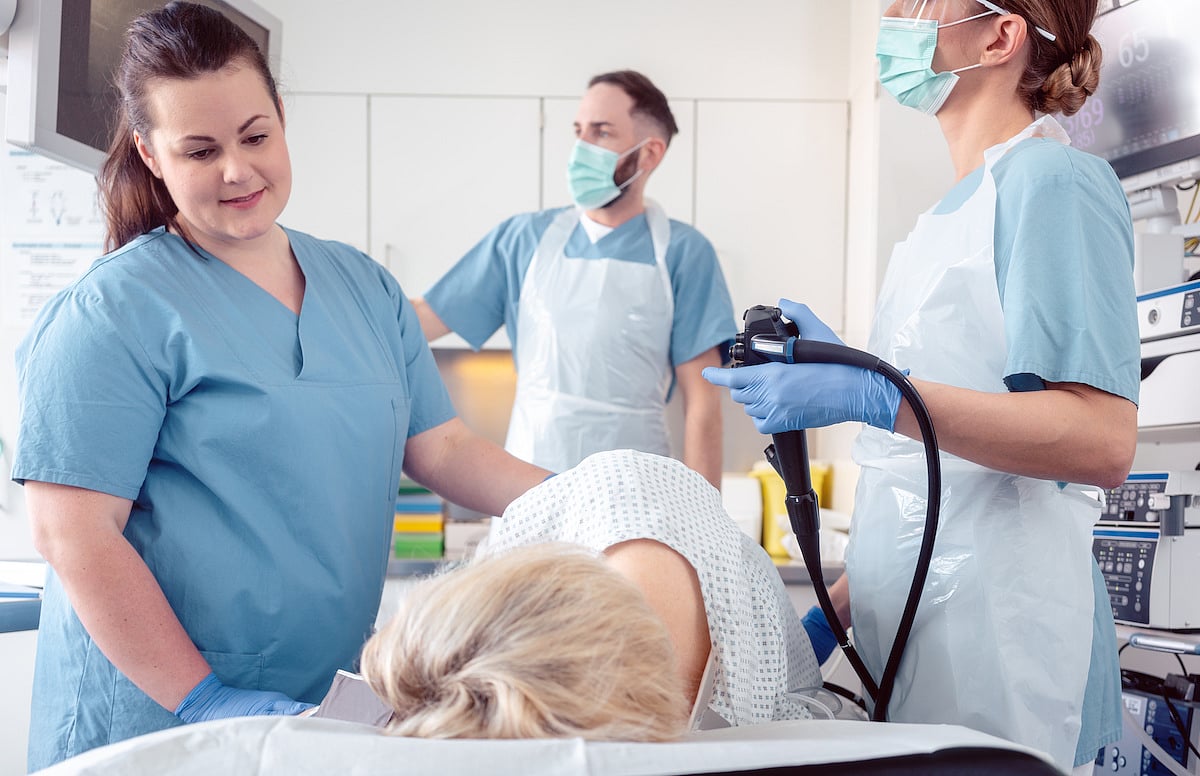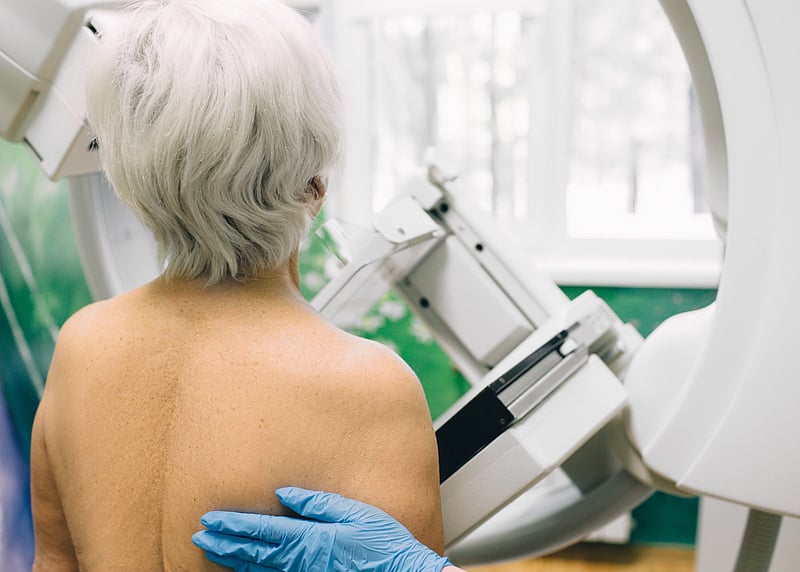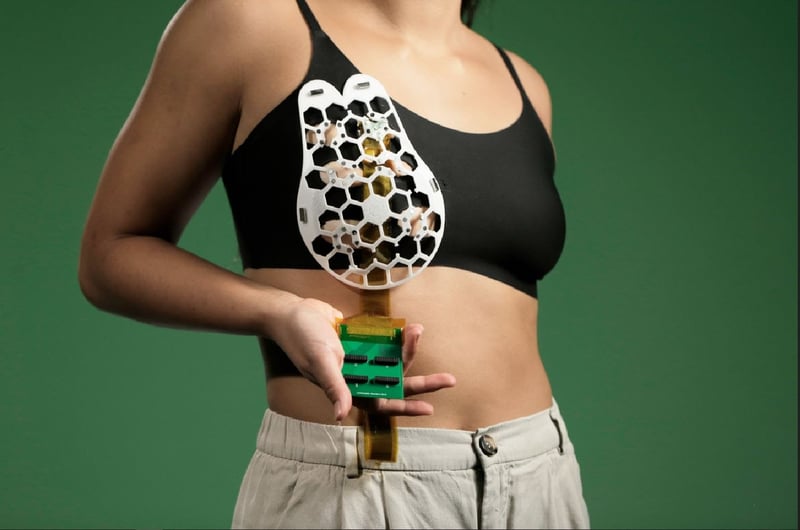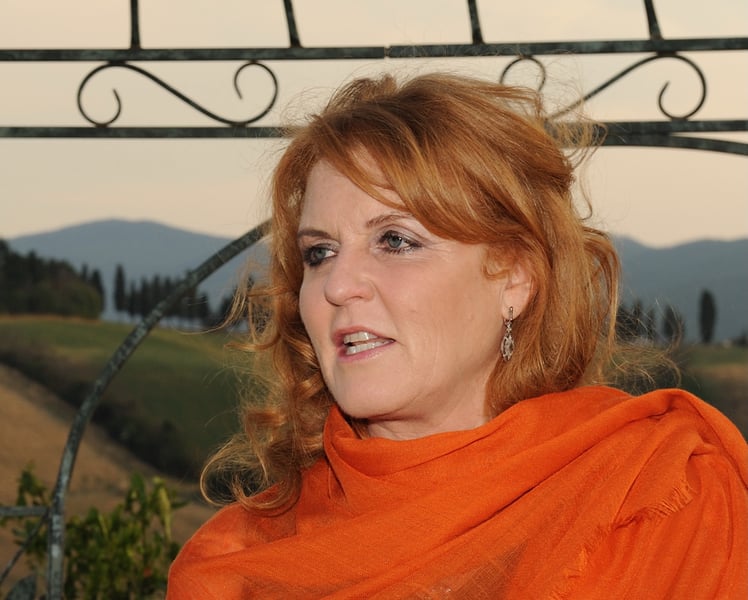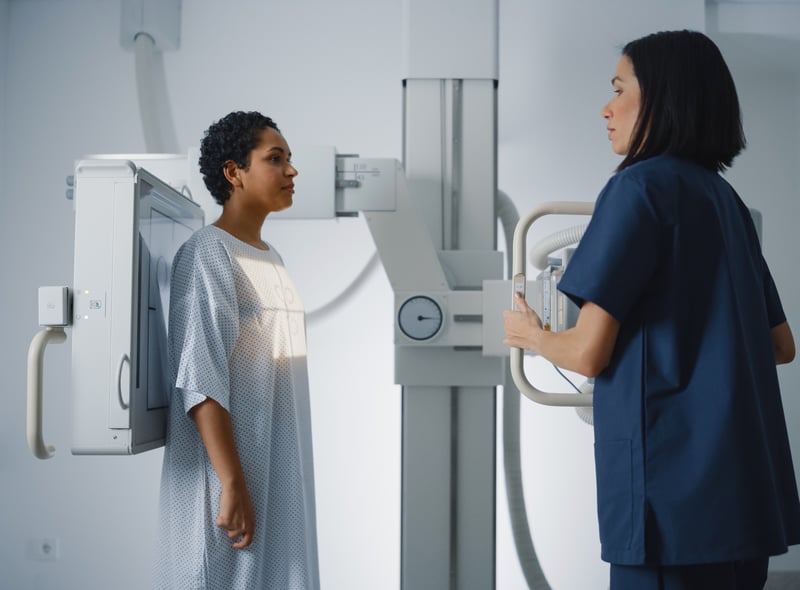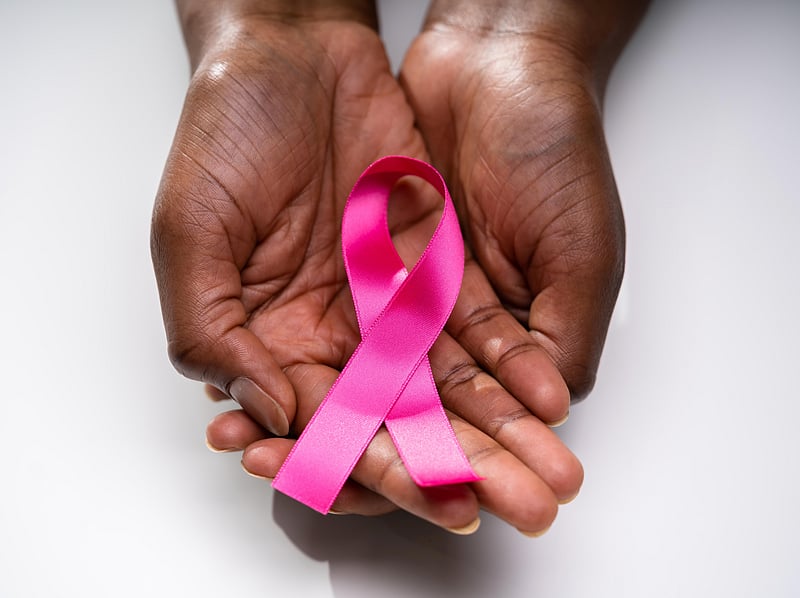Get Healthy!
Results for search "Mammography".
09 Oct
Harder-to-Detect Breast Cancer Increasing in U.S. Women
A new report from the American Cancer Society finds a steep rise in lobular breast cancer between 2012 and 2021.
17 Apr
Mammograms After 70 May Lower Risk for Late-Stage Breast Cancer
A new study finds older breast cancer patients who were screened at least once during the five years prior to diagnosis had 54% lower odds of advanced disease.
Health News Results - 71
Artificial intelligence (AI) can help reduce the number of breast cancers found between mammogram screenings, clinical trial results show.
There was a 12% reduction in cancer diagnoses in the years following AI-supported breast cancer screening — a ke...
- Dennis Thompson HealthDay Reporter
- |
- January 30, 2026
- |
- Full Page
Tailoring breast cancer screening to a woman’s individual cancer risk might work better than annual mammograms, a new study says.
Women had breast cancers caught at an earlier, more treatable stage when assigned to risk-based screening, compared to th...
- Dennis Thompson HealthDay Reporter
- |
- December 16, 2025
- |
- Full Page
American women are notified if a mammogram reveals they have dense breasts, which can hamper the accuracy of breast cancer screening.
But this knowledge might be more trouble than it’s worth, a new study argues.
The news can spark fear and unce...
- Dennis Thompson HealthDay Reporter
- |
- December 4, 2025
- |
- Full Page
As many as 1 in 4 breast cancers occur in women younger than 50, a new study has found.
Among seven outpatient clinics in the New York region, 20% to 24% of breast cancers were found in women 18 to 49, according to results presented Monday at the Radiologic...
- Dennis Thompson HealthDay Reporter
- |
- December 2, 2025
- |
- Full Page
Though most guidelines recommend mammograms up to age 74, new research suggests they can be valuable for women in their 80s, detecting breast cancer earlier and increasing chances of survival.
The research — published in the
Women with dense breasts could benefit from an advanced cancer screening procedure called molecular breast imaging (MBI), a new study says.
The procedure more than doubled the detection of advanced breast cancers when combined with 3D mammography, researchers reported Sept. 23 in the ...
- Dennis Thompson HealthDay Reporter
- |
- September 24, 2025
- |
- Full Page
Regular mammograms might offer a “two-for-one” opportunity to protect women’s health, a new study says.
Mammograms can be used to successfully predict heart disease risk in women, on top of their ability to detect early breast cancers, researchers reported Sept. 16 in the journa...
- Dennis Thompson HealthDay Reporter
- |
- September 17, 2025
- |
- Full Page
Starting breast cancer screening in women’s early 40s will save more lives, a new study argues.
Nearly 3 in 4 women (73%) in their 40s find out they have breast cancer only after they’ve developed symptoms, researchers reported May 30 in the journal
Louise Duffield, 60, was relieved to receive a normal mammogram result in 2023, but agreed to undergo an additional MRI scan recommended as part of a clinical trial.
Her mammogram showed she had very dense breasts, which can sometimes prevent detection of breas...
- HealthDay Reporter
- Dennis Thompson
- |
- May 22, 2025
- |
- Full Page
Artificial intelligence (AI) can help prevent breast cancers that develop between routine mammograms, by catching ones that trained radiologists would overlook, a new study says.
Incorporating AI into mammography could help reduce the number of interval bre...
- HealthDay Reporter
- Dennis Thompson
- |
- May 14, 2025
- |
- Full Page
Women are OK with having an AI program help doctors review mammograms performed for breast cancer screening, a new study says.
About 7 out of 10 women (71%) said they’re fine with an AI program providing backup for a radiologist’s review of their breast X-ray, researchers report in th...
- HealthDay Reporter
- Dennis Thompson
- |
- April 22, 2025
- |
- Full Page
Mammograms can be used to screen for more than just breast cancer, researchers say.
The X-ray breast scans also can be used to assess calcium deposits in arteries, which is an indicator of heart health, researchers are scheduled to report Monday at a meeting of the American College of Cardiology in Chicago.
Using artificial intelligence (AI), researchers were able to analyze calcium...
- HealthDay Reporter
- Dennis Thompson
- |
- March 25, 2025
- |
- Full Page
Preventive screenings for cancer declined during the pandemic, with lockdowns, social distancing and COVID-19 surges keeping many from needed mammograms and colonoscopies.
But breast and colon cancer screening numbers have since rebounded and have even surpassed pre-pandemic scree...
- HealthDay Reporter
- Dennis Thompson
- |
- March 6, 2025
- |
- Full Page
Women of color are less likely to receive prompt follow-up testing after abnormal mammogram results, a new study has found.
Minority women are less likely than white women to receive a same-day advanced imaging or biopsy after an abnormal mammogram, even though they have similar access to those s...
- HealthDay Reporter
- Dennis Thompson
- |
- February 19, 2025
- |
- Full Page
Appalachia has a rich history and gorgeous landscapes, but it has also experienced rates of cancer incidence and death that outstrip those of much of the rest of America.
However, new data offer hope to the 26 million people living in the region: Cancer rates are falling, although not as steeply as elsewhere in America.
Still, “there are reasons for hope and opportunities to i...
- HealthDay Reporter
- Ernie Mundell
- |
- February 10, 2025
- |
- Full Page
A new AI can help identify women at higher risk for developing breast cancer by tracking changes in breast tissue, a new study shows.
The AI compares women’s own mammograms over time, looking for early signs of breast cancer that are tough to see even...
- HealthDay Reporter
- |
- December 6, 2024
- |
- Full Page
Having close family and friends who care about their health makes women more likely to get regularly screened for cancer, a new study has found.
Women are more likely to undergo regular cancer screening if they have a tighter web of social and emotional connections, researchers reported Oct. 17 in the journal Cancer Causes & Contro...
- HealthDay Reporter
- Dennis Thompson
- |
- October 18, 2024
- |
- Full Page
A significant number of women stop getting regular mammograms after being frightened by a “false positive” scan that incorrectly suggests they have breast cancer, a new study finds.
About 77% of women return for a regular mammogram after a negative result that shows they’re clea...
- HealthDay Reporter
- Dennis Thompson
- |
- September 3, 2024
- |
- Full Page
A new study supports the notion that women age 40 and older get a mammogram each year rather than every two years, to help catch breast cancers early.
The rate at which mammograms revealed a tumor in its later stages was significantly lower among women who got an annual m...
- HealthDay Reporter
- Ernie Mundell
- |
- August 28, 2024
- |
- Full Page
Screening for cancer saves lives, but a new report shows it comes with a hefty price tag: The United States spends at least $43 billion annually on tests that check for five major cancers.
Published Monday in the Annals of Internal Medicine, the new analysis focused on screenings for br...
- HealthDay Reporter
- Robin Foster
- |
- August 6, 2024
- |
- Full Page
All women should start getting mammograms every other year beginning at age 40, the nation's top panel of preventive health experts announced Tuesday.
About 20% more lives can be saved from breast cancer by moving the regular screening age up to age 40, rather than starting at age 50,...
- HealthDay Reporter
- Dennis Thompson
- |
- April 30, 2024
- |
- Full Page
Young women who find a lump or other potential signs of breast cancer often delay for weeks before finally seeing a doctor, a new study shows.
On average, young women waited two weeks before seeing a doctor about troubling breast symptoms, researchers found. One-third of young breast cance...
- HealthDay Reporter
- Dennis Thompson
- |
- April 12, 2024
- |
- Full Page
Health care cost and access are not the only barriers women face in getting lifesaving mammograms, a new government report finds.
Food insecurity, lack of transportation, less hours at work and feelings of isolation also can keep women from getting screened for breast cancer, resea...
- HealthDay Reporter
- Dennis Thompson
- |
- April 9, 2024
- |
- Full Page
Allowing women to schedule their own mammography appointments increases the likelihood they'll follow through on the screening, a new study reports.
"Self-scheduling helps make the path to mammogram completion a little smoother, where you don't have to find the time to call a scheduling line, wait on hold, or go back and forth trying to find an appointment that works for your schedule,"ex...
- HealthDay Reporter
- Dennis Thompson
- |
- December 15, 2023
- |
- Full Page
Under current U.S. guidelines, women over 49 who've survived early-stage breast cancer are directed to undergo a mammogram every year "indefinitely."
But a new British study suggests that, just three years after being declared free of their cancer, these women might be fine having mammograms less frequently.
"The trial demonstrated that the outcomes from undergoing less frequent mam...
- HealthDay Reporter
- Ernie Mundell
- |
- December 8, 2023
- |
- Full Page
A woman who gets her regular mammograms as scheduled is much less likely to die from breast cancer than if she skips screenings, a new study shows.
Women with breast cancer who underwent all her scheduled mammograms had a survival rate of 80%, compared with survival rates as low as 59% for women who didn't participate in any screenings, researchers found.
"The purpose of mammography...
- HealthDay Reporter
- Dennis Thompson
- |
- November 30, 2023
- |
- Full Page
Chalk up a surprising benefit to government housing assistance.
Breast cancer screening is higher among some low-income women who get government help with housing compared to those who do not, new research shows.
"Receiving housing assistance has been associated with several positive health outcomes and health behaviors in past research, and our findings suggest it can also support ...
- HealthDay Reporter
- Carole Tanzer Miller
- |
- November 15, 2023
- |
- Full Page
Women who have a false-positive result on a screening mammogram may have an increased risk of breast cancer for up to 20 years, a large new study finds.
False-positives occur when a screening mammogram seems to show something abnormal that, with follow-up testing, is declared non-cancerous.
The new study...
- HealthDay Reporter
- Amy Norton
- |
- November 3, 2023
- |
- Full Page
The vast majority of women know a lump in their breast likely signals the presence of cancer, a new survey finds, but that's not the only sign of the disease.
"Screening mammography is our No. 1 defense in detecting and addressing breast cancers at their earliest, most treatable stages, but it is also very important for people to be familiar with the look and feel of their own breast tis...
- HealthDay Reporter
- Cara Murez
- |
- October 16, 2023
- |
- Full Page
Catching breast cancer early is key to making it easier to treat and survive, according to the American Cancer Society (ACS).
The organization aims to highlight early detection, noting that screening with mammography has helped breast cancer death rates drop 43% since 1989.
"Breast cancer is the most common cancer in women (after skin cancer) and the second most common cause of canc...
- HealthDay Reporter
- Cara Murez
- |
- October 8, 2023
- |
- Full Page
Mammograms have long offered early detection of breast cancer, which is why getting them regularly is crucial to women's health, one expert says.
"There are several risk factors associated with breast cancer. As with many other diseases, risk of developing breast cancer increases as you get older,"said Dr. Mridula George
- HealthDay Reporter
- Cara Murez
- |
- October 1, 2023
- |
- Full Page
While guidelines for cancer screening have begun factoring in life expectancy, a new poll shows a majority of older adults disagree with age cutoffs based on how long a person is expected to live.
The University of Michigan National Poll on Healthy Aging querie...
- HealthDay Reporter
- Cara Murez
- |
- September 29, 2023
- |
- Full Page
Another study is showing that artificial intelligence (AI) is as good as a specialist doctor in spotting breast cancer on a mammogram. But don't expect computers to take over the job from humans, experts say.
In a study that compared the mammography-reading skills of an AI tool with those of more than 500 medical professionals, researchers found that it was basically a tie.
On avera...
- HealthDay Reporter
- Amy Norton
- |
- September 5, 2023
- |
- Full Page
While new research suggests cancer screenings are not extending lives for the most part, the study's authors stressed that there are still good reasons why people should continue with screenings.
Their review of clinical trials looked at six kinds of common cancer tests -- mammography, colonoscopy, fecal occult blood testing (FOBT) or endoscopy, prostate-specific antigen (PSA) tests and c...
- HealthDay Reporter
- Cara Murez
- |
- August 28, 2023
- |
- Full Page
The risks of screening mammograms to catch breast cancer may outweigh the benefits for certain women aged 70 or older, new research indicates.
The main risk? Overdiagnosis and treatment of a breast cancer that likely wouldn't have caused any symptoms during a woman's lifetime.
"For women who are on the younger end of the age range and who are generally healthy, the risk of overdiagn...
- HealthDay Reporter
- Denise Mann
- |
- August 8, 2023
- |
- Full Page
Artificial intelligence (AI) programs can safely be used to help radiologists review mammogram images and detect breast cancers, early results from an ongoing clinical trial show.
A single radiologist aided by AI wound up detecting about 20% more breast cancers from mammogram images than two radiologists working together, according to a report in the August issue of The Lancet Oncolog...
- HealthDay Reporter
- Dennis Thompson
- |
- August 2, 2023
- |
- Full Page
Scientists have developed a wearable ultrasound patch that might eventually allow women to monitor themselves for early signs of breast cancer in the comfort of their home.
The achievement, reported July 28 in the journal Science Advances, is the latest in a broader research effort to make wearable ultrasound a reality.
The hope is to one day use such portable technology t...
- HealthDay Reporter
- Amy Norton
- |
- July 28, 2023
- |
- Full Page
Sarah Ferguson has undergone treatment for breast cancer, she announced on her podcast.
The Duchess of York, 63, had a mastectomy after the diagnosis and the surgery was successful, her rep confirmed Sunday, People magazine reported.
"The Duchess is receiving the best medical care and her doctors have told her that the prognosis is good. She is now recuperating with her f...
- HealthDay Reporter
- Cara Murez
- |
- June 26, 2023
- |
- Full Page
Screening mammograms saves lives, and consistency counts for a lot.
That's the main message from a new study that looked at how regularly women received mammograms before a breast cancer diagnosis. The closer a woman adhered to guidelines on a year-to-year basis, the less likely she was to die of breast cancer.
"It is quite common for women to not receive their mammography ...
- HealthDay Reporter
- Denise Mann
- |
- June 5, 2023
- |
- Full Page
Health screenings and preventive care appointments are a key to maintaining long-term health and well-being. By proactively engaging in these practices, women can identify potential health risks early on and take necessary steps.
This guide will outline the key women's health screenings and care appointments to help you prioritize your health and stay on top of your well-being.
- HealthDay Reporter
- Ann Schreiber
- |
- May 19, 2023
- |
- Full Page
In a major change from its longstanding advice, an influential medical panel now recommends that women start mammography screening for breast cancer at age 40.
The new guidance, from the U.S. Preventive Services Task Force, says women at average risk of breast cancer should start having mammograms, every other year, when they turn 40. For years, the recommendation had been to start at age...
- HealthDay Reporter
- Amy Norton
- |
- May 9, 2023
- |
- Full Page
While the typical recommendation is for women to start getting mammograms at age 40, the American College of Radiology has released new guidelines that call for all women to have a breast cancer risk assessment by age 25 to determine if they should start screening mammograms before they turn 40.
This early step is particularly important for women who are Black or Ashkenazi Jewish, the gu...
- HealthDay Reporter
- Cara Murez
- |
- May 4, 2023
- |
- Full Page
A new study has uncovered a possible risk factor for breast cancer that could help doctors more accurately weigh a woman's chances of developing the disease.
While it's known that women with dense breast tissue have a greater risk for developing breast cancer and that breast density declines with age, researchers have now found evidence of cancer risk specific to breast density declining ...
- HealthDay Reporter
- Cara Murez
- |
- May 1, 2023
- |
- Full Page
Older breast cancer survivors often have other medical issues and a shorter life expectancy than younger breast cancer survivors. What's more, their cancers are often slow-growing, and surveillance may lead to over-treatment of cancers that won't kill them, researchers say.
Despite these downsides, older breast cancer survivors are still undergoing mammograms even though their risk of dev...
- HealthDay Reporter
- Denise Mann
- |
- April 27, 2023
- |
- Full Page
Experts recommend that women at least consider starting breast cancer screening once they turn 40. Now a new study suggests that is especially critical for Black women.
Looking at data on U.S. breast cancer deaths, researchers found -- as other studies have -- that Black women in their 40s were substantially more likely to die of the disease than other women their age. The disparity was s...
- HealthDay Reporter
- Amy Norton
- |
- April 21, 2023
- |
- Full Page
A new study shows that money, or lack of it, can stand in the way of follow-up testing after an abnormal mammogram result.
Just over one-fifth of U.S. women surveyed by researchers said they would skip additional testing if they had to pay a deductible or co-pay.
Of 714 women who responded when asked if they'd have follow-up imaging if they had to pay for all or part of it, 21% said...
- HealthDay Reporter
- Cara Murez
- |
- April 5, 2023
- |
- Full Page
Breast cancer screening may be free for women with health insurance, but high costs may still keep some from getting needed follow-up tests, a new study finds.
The study, of more than 230,000 U.S. women who underwent screening mammography, found that those in insurance plans with higher out-of-pocket costs were less likely to get follow-up testing after an abnormal screening result.
- HealthDay Reporter
- Amy Norton
- |
- March 31, 2023
- |
- Full Page
Newer scanning technology may spot more breast cancers and lower the rate of dreaded false positives, a large, new study shows.
Now available in a growing number of health care facilities, tomosynthesis uses low-dose X-rays and computer reconstructions to create 3D images of the breasts to find cancers. In contrast, traditional mammography creates 2D images of the breasts.
"Tom...
- HealthDay Reporter
- Denise Mann
- |
- March 14, 2023
- |
- Full Page
New U.S. federal regulations will require mammography facilities to tell women if they have dense breasts, a description of how the tissue looks on the X-ray.
It can be more difficult to detect cancer in dense breast tissue on a mammogram. Having dense breasts is also a risk factor for developing breast cancer.
The U.S. Food and Drug Administration update amends regulations issued u...
- HealthDay Reporter
- Cara Murez
- |
- March 9, 2023
- |
- Full Page
Many Americans are not getting recommended cancer screenings, and a new study hints at one way to push the needle: paid sick leave from work.
Researchers found that in areas of the United States that passed mandates on paid sick leave, cancer screening rates inched up in the years afterward. Breast cancer screening rose by roughly 3%, while colon cancer screening increased by 6% to 8%.
- HealthDay Reporter
- Amy Norton
- |
- March 2, 2023
- |
- Full Page
